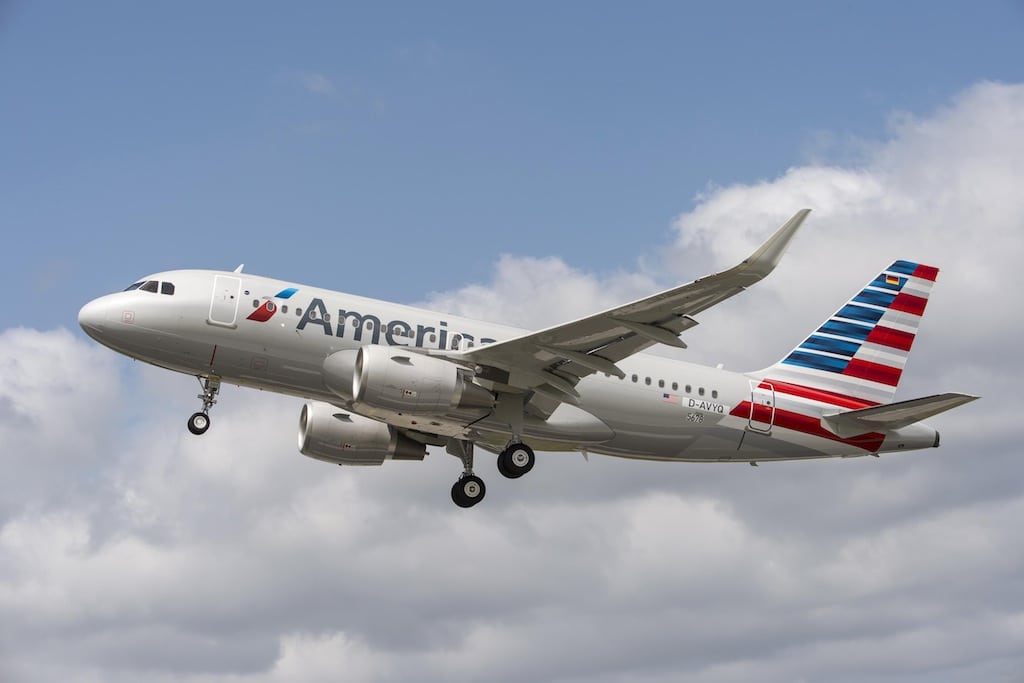Skift Take
It's unclear why the APFA opposes voice calls, in part because of security threats and other reasons such as inconvenience to passengers, but doesn't view data or Wi-Fi as threats to passenger safety. Security should of course be a player at these debates, but the APFA not unifying its position on the subject doesn't help its cause.
As the debate over in-flight calls in the U.S. trudges through government committee hearings and boardrooms, one flight attendants union says security isn’t as much of a focal point of discussions as it should be.
Reasons for the Association of Professional Flight Attendants union’s (APFA) overall opposition to in-flight voice calls include that they’re disturbances to passengers, for example. The union, which represents 16,000 American Airlines flight attendants, also takes the position that in-flight voice calls pose security threats to aircraft safety. However, APFA says text messaging, data and Wi-Fi usage are not a threat.
“Many of our planes have Internet connections and we do not see that as a security issue.” said Julie Frederick, an APFA spokesperson, in response to comments she made at a Department of Transportation (DOT) committee meeting at the Advisory Committee on Aviation Consumer Protection (ACACP) in Washington, D.C. on Wednesday.
“Our testimony was focused on the quality of the in-fight experience. We remain vigilant and concerned regarding all aspects of safety and security.”
Frederick made the following statement at Wednesday’s meeting:
“In 2005, when the FCC last took under consideration lifting the ban on mobile devices, the issue was raised regarding the potential threat to the U.S. commercial aviation system. At that time, the Justice Department, the Department of Homeland Security, and the Federal Bureau of Investigation all raised concerns stating in part, ‘the uniqueness of service to and from an aircraft in-flight presents the possibility that terrorists and other criminals could use air-to-ground communications systems to coordinate an attack.'”
Frederick said APFA takes this stance because flight attendants are the last line of the defense in maintaining cabin safety. But it’s perplexing the union views calls as a threat while it feels differently about text messages, data and Wi-Fi, given that theoretically all of those could be used to communicate with terrorists.
“My point was simply that this was an issue in 2005 but does not seem to be a part of the current review process,” Frederick said in response to her comments at Wednesday’s meeting.
The Association of Flight Attendants union (AFA), which represents 60,000 flight attendants at airlines such as United and Alaska, could not be reached for comment regarding their response to APFA’s differing positions on what technology constitutes security threats on planes.
AeroMobile, a U.K.-based airline telecommunications company, has a more unified point of view to the security question.
“We don’t see any difference in security for voice calls versus using data or Wi-Fi to communicate with people on the ground, said Jack Gordon, a spokesperson for AeroMobile. “We don’t see either as a security threat.”
While it would be contradictory for the company to claim their products pose safety risks, AeroMobile raises the point of how minimal the issue has been outside the U.S. Providing cellular service and connectivity to airline passengers since 2008, the company’s encountered few problems on non-U.S. airlines it operates on, Gordon said.
“What we’ve seen is that passengers are more than capable of self-regulating their behavior with voice calls,” said Gordon.
“[Voice calls are] a valued product that’s not used that often. Most calls made on flights are only a couple minutes long. Data is widely used and is the dominate service with our airlines. One of the key things around mobile networks on planes is that they’re very easy to use, you don’t have to download anything. Your phone connects to your home network and you use it as if you were on the ground. We noticed about 50 to 60 passengers per flight using our services.”
Gordon added usage or voice calls and data/texting for devices varies depending on a flight’s time of day and length, and that the company’s noticed device connectivity and cell service is especially appreciated by passengers on short flights where in-flight entertainment generally isn’t available.
The Federal Aviation Administration’s (FAA) ban on in-flight voice calls remains in effect, and AeroMobile currently works with only AT&T and T Mobile in the U.S. for data usage on planes, but is in talks with other U.S. phone carriers. It’s unclear when the FAA will decide whether to allow or continue banning calls.
The Daily Newsletter
Our daily coverage of the global travel industry. Written by editors and analysts from across Skift’s brands.
Have a confidential tip for Skift? Get in touch
Tags: american airlines, flight attendants
Photo credit: One of the brand-new jets American has recently purchased. American Airlines
